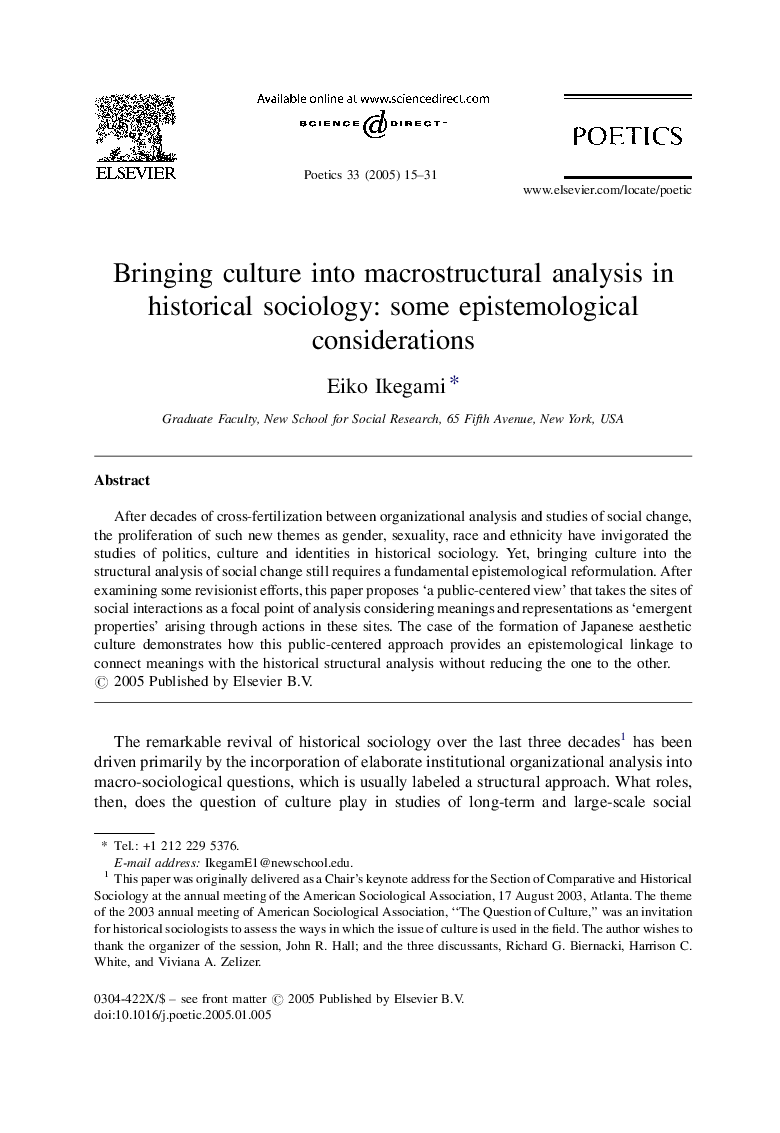| Article ID | Journal | Published Year | Pages | File Type |
|---|---|---|---|---|
| 10521426 | Poetics | 2005 | 17 Pages |
Abstract
After decades of cross-fertilization between organizational analysis and studies of social change, the proliferation of such new themes as gender, sexuality, race and ethnicity have invigorated the studies of politics, culture and identities in historical sociology. Yet, bringing culture into the structural analysis of social change still requires a fundamental epistemological reformulation. After examining some revisionist efforts, this paper proposes 'a public-centered view' that takes the sites of social interactions as a focal point of analysis considering meanings and representations as 'emergent properties' arising through actions in these sites. The case of the formation of Japanese aesthetic culture demonstrates how this public-centered approach provides an epistemological linkage to connect meanings with the historical structural analysis without reducing the one to the other.
Related Topics
Social Sciences and Humanities
Arts and Humanities
Arts and Humanities (General)
Authors
Eiko Ikegami,
